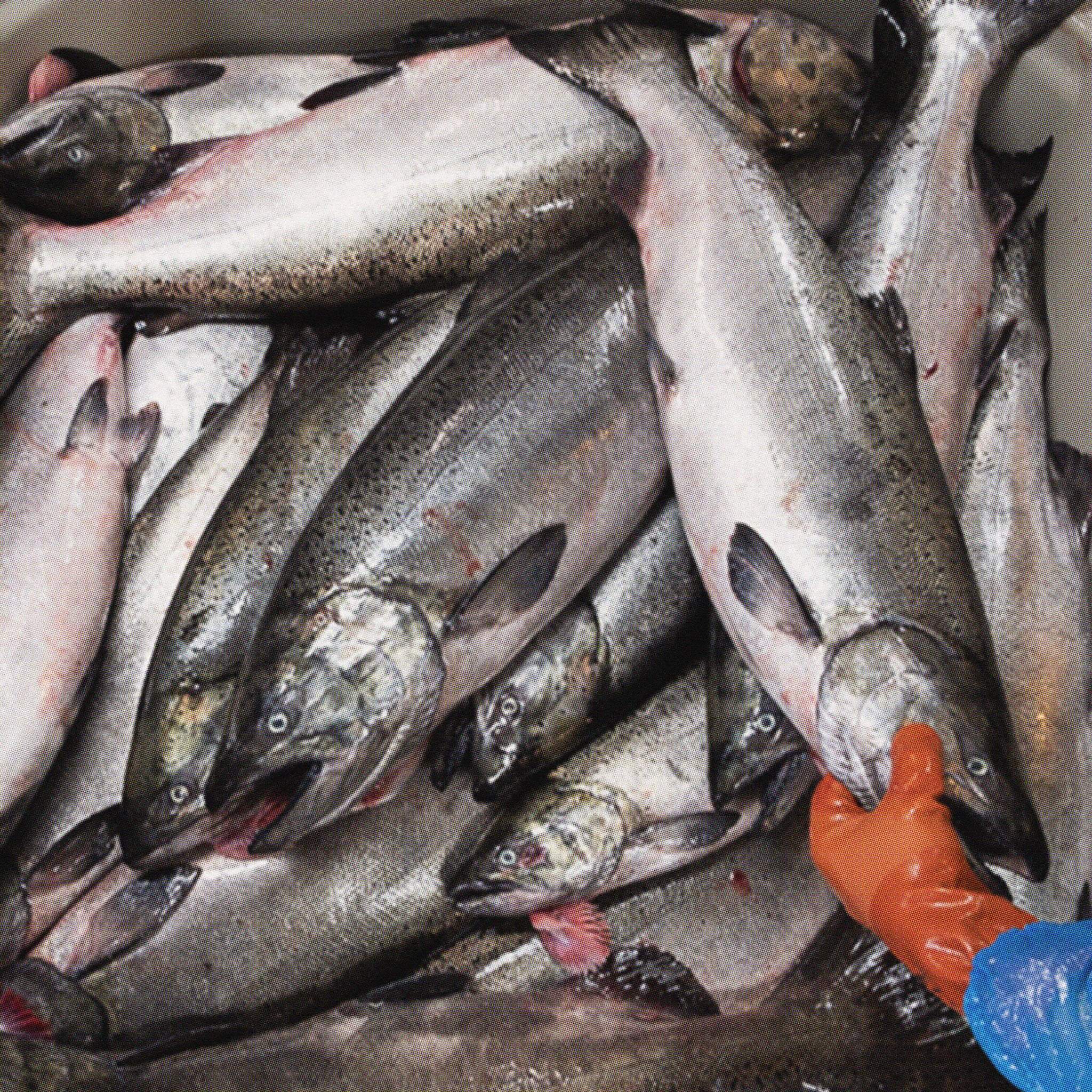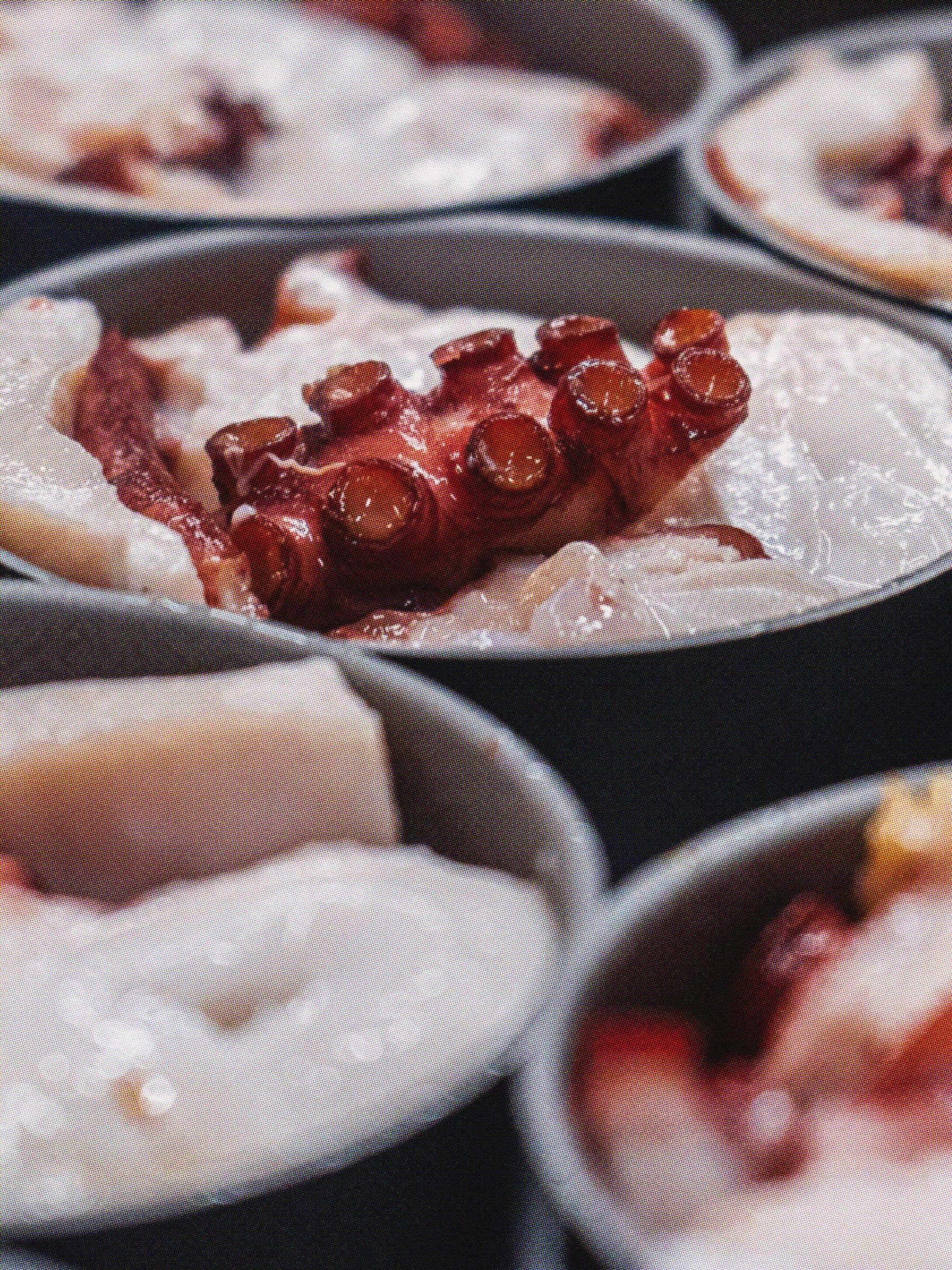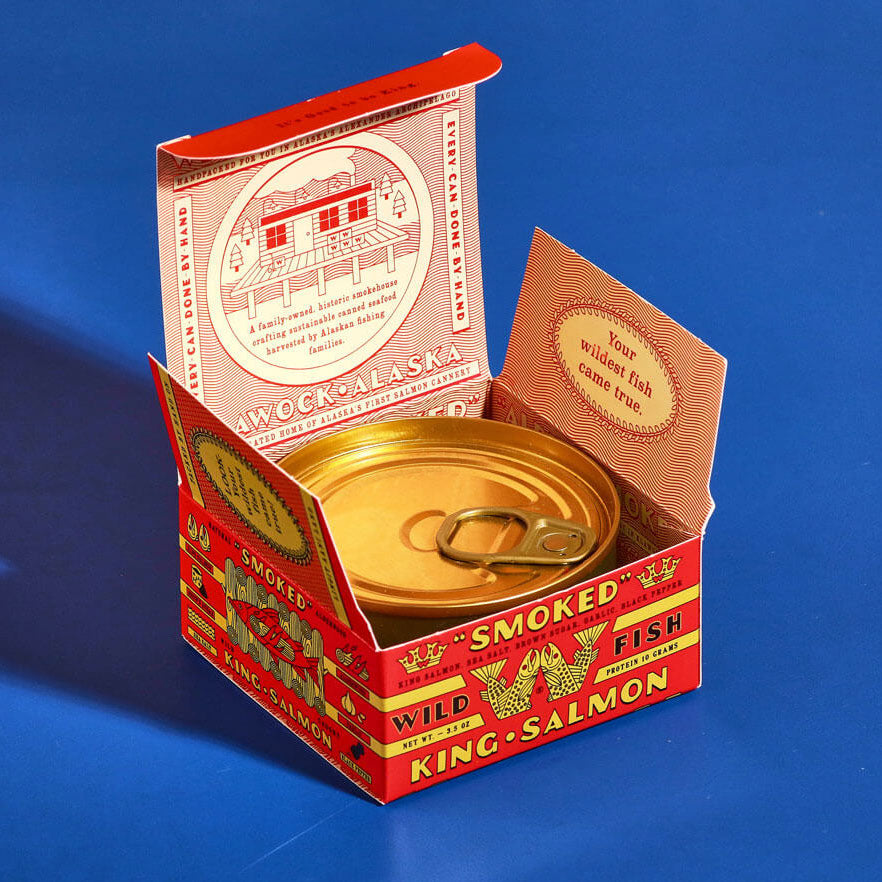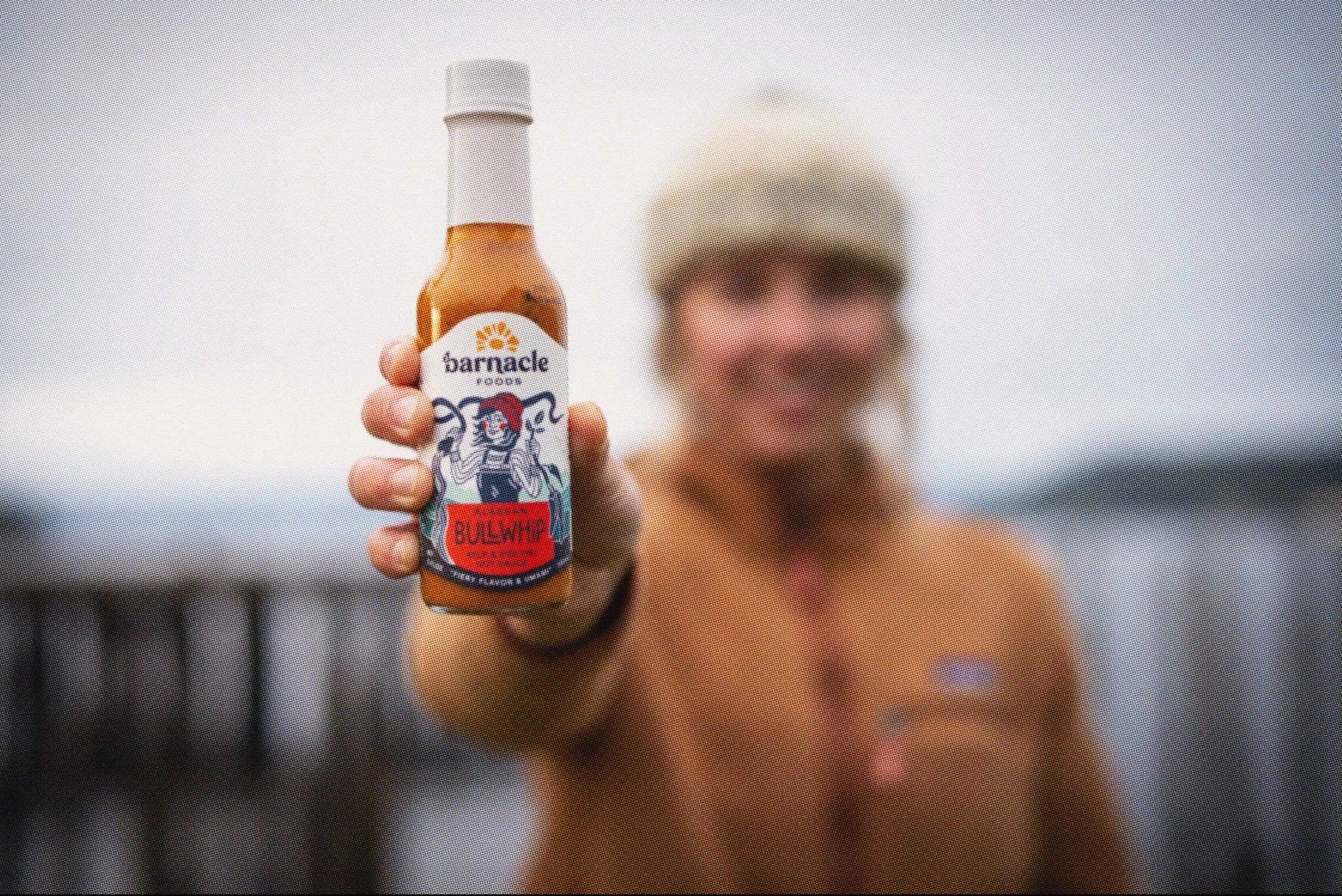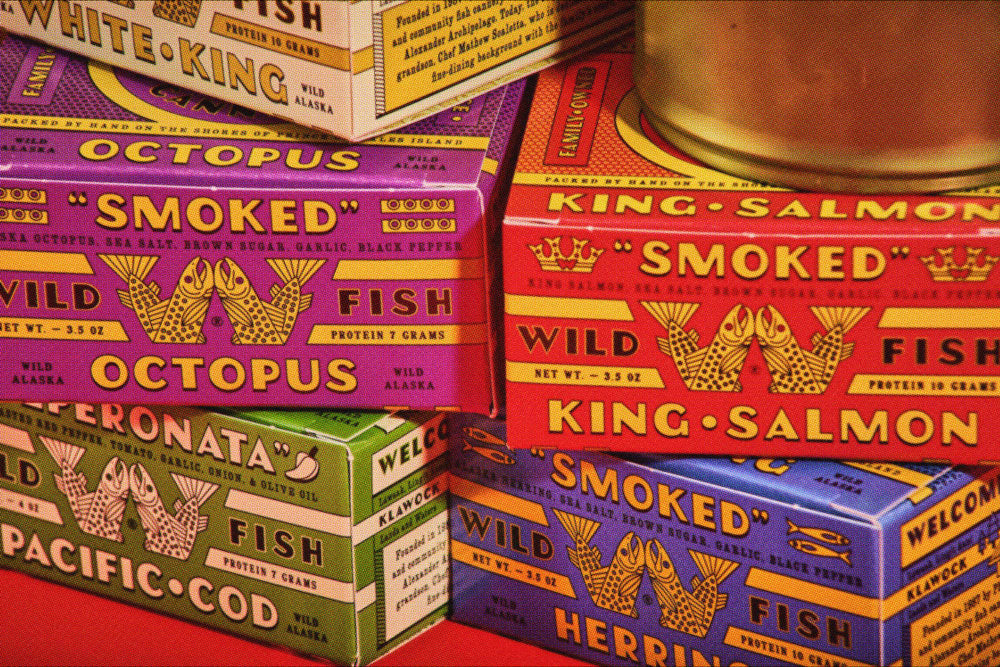

· By Mathew Scaletta
4 Reasons Why Canned Food is Smart Food Security
Some folks take a view of canned food that we, as a cannery, would call uncannily unkind. Beyond apologizing for that sentence, we want to suggest that maybe some of America’s gelatinized, molded and clabbered concoctions of canned meat, fish and vegetables from the 1950s and ‘60s had something to do with it. The culinary creativity on display in this great nation during those decades taught us to believe that canned foods are unappetizing to a lot of people, especially when presented in a dyed cloud of mayonnaise fluff.
A lot of people. But not all people.
Canned food is very durable food, and the nature of the canning process yields some unique nutritional benefits. What’s more, some of the world’s most unique and desirable delicacies are found ready to eat in cans, which saves you time when you need to feel fancy in a hurry. The benefits of this elegantly simple food preservation format are seemingly endless.
You could stop reading right there and start opening a can of Wildfish Pink Scallops, but we have some facts to back up our bold claims.

Durable Canned Food is All-Terrain Food Security
Alaska is a wild, mostly untamed natural environment—we’ve got loose eagles and bears up here. Whales, hawks and wolves too. In many parts of our beautiful state, humans are not really in charge of things that matter, such as life. Technically, that’s wild.
And, relative to many other places in America, there are just not many retail stores per square mile in Alaska. We have towns and settlements in remote, isolated places, and getting food and supplies to the people in those places can be an adventure.
White Mountain is an isolated native village just east of Nome, Alaska, and it’s a great example. The shallow waters around the village prevent freight vessels from getting in. The airstrip is not long enough to land a freight plane, and no roads go to White Mountain. Suffice it to say that getting things to White Mountain presents a unique set of challenges.
Alaska Traffic was once tasked with delivering a loaded 20-foot shipping container and a small building to White Mountain, so the company hatched a clever plan with the native council. The freight was delivered to Golovin, just south of White Mountain, and it sat there for a few months until winter. When the river ice became thick enough to sustain the weight of the delivery, bulldozers dragged the shipment across the ice on sleds.
When we need to go to such lengths to get our stuff, it’s no wonder that Alaskans tend to order big, as well as shelf-stable. And that’s why canned food is such an important part of our diet and culture. Many residents of Prince of Wales Island don’t feel too far removed from the years spent consuming canned foods almost exclusively, everything from canned whole milk to canned brown bread and everything in between, including lots of canned salmon. Canned food lasts for years (one to five years at minimum,) and is a great way for Alaskans to custom process their subsistence seafood—which comes in handy when we need as much room as possible in our coffin freezers for the rest of our summer and fall harvests! And since it’s fully cooked, all you need to do with a can is open it and begin eating. The uniform shape of cans also makes for efficient freight packing, and cans are sturdy containers that protect the shape and integrity of foods such as salmon and other conservas.
In so many ways, canned food is food security. But the winning doesn't stop there.
Winner, Winner, Canned Food Dinner
Canned food can play a pretty central role in a healthy diet if you watch the salt and sugar content. Did you know that regular eaters of food from cans actually take in more fruits, vegetables and nutrients than those who eat less canned food? Yes! True!
For the canning process, fruits and vegetables are picked at their peak condition, locking in maximum flavor and nutrition. Canning preserves protein, fat, carbohydrates, minerals and fat-soluble vitamins, but water soluble vitamins like vitamins B and C can be diminished by the high heat required. But wait! The same heat that diminishes some vitamins can boost antioxidants, such as the lycopene in tomatoes. Canned tomatoes are actually pretty good for you, and they’re reliably flavorful year round.

Canned Food is Profoundly Liberating
In rugged conditions, there are plenty of things to do that are more important than deconstructing a curated potato, or any other detailed cooking project. You might not currently live in rugged conditions, but we suspect that the rest is true for you too.
These days Americans find themselves in the midst of a trend (or, is it a movement?) toward taking more time to do things, and doing them mindfully. We at Wildfish approve, and we endorse that orientation. It’s terrific that more people are waking up to the notion that life is what we make of it, and not what we’re told it is.
How much time will you have to walk in the evening with a friend if you spend two hours crafting a meal on a plate, atop a table, in a room? Try cutting your temporal overhead. Enjoy the massive early to mid-term profits of a greater connection with your immediate experience. Here’s one way: Make easier meals.
Take it from us busy Alaskans: There is no easier meal than a can of smoked fish with some pickles and crackers. Open a can, get busy with a fork, and in a few minutes you can be paying attention to something else. We assure you that such immediate satiety is quite liberating.
And now that you understand the first three reasons why eating canned food can be a smart way to eat, the fourth reason should have you rerouting your meal plan in three, two, one….
Some Exquisite Delicacies Are Only Available In Cans
As noted earlier in this protracted verbal exercise, American canned cuisine has taken on some unsettling incarnations. Negative associations have firmly lodged themselves in the psyches and appetites of an unfortunate few. But some of the world’s most coveted delicacies are found in cans.
Take, for instance, the luxury Spanish seafood conservas that we have a hard time keeping in stock. If you’ve never seen a Spaniard’s eyes light up and go googly at the sight of tinned Basque angulas (baby eels), then we must tell you that it’s a thing. Spain has a vibrant canned seafood culture that’s directly linked to its love of small-plate tapas dining, and the array of truly unique products is vast enough to keep an amateur culinary anthropologist busy for a few years.
By Jove, Oregon Fruit down in Oregon, of all places, is yet another great example of canned food excellence, and they’re American. For close enough to a century, the canned fruit producer has given us the finest berries and tree fruit from the Willamette Valley, one of the richest, moistest, most chocolatey growing regions on Earth. Thanks to Oregon Fruit, you can have dank gooseberries at any time. We eat them right out of the can with a long toothpick.
And we urge you to reconsider whatever salty stance you may strike against canned food. Get the good stuff, watch the salt and added sugars, and make nice things from the contents of whatever food cans you acquire. If you need inspiration in the canned seafood department, our ever-expanding universe of recipes is always here to light up your bulb.
And, hey! If you have a unique family recipe involving canned ingredients that you think we should Wildfish-ify, do drop us a note.
Share:
2 comments
-
Hello Pete, thank you for responding and for being part of our community!
Wildfish Canner on
-
I totally with this article. Our Alaska Native ancestors caught and preserved long before us. Keep up the good work
Pete Galaktianoff on
